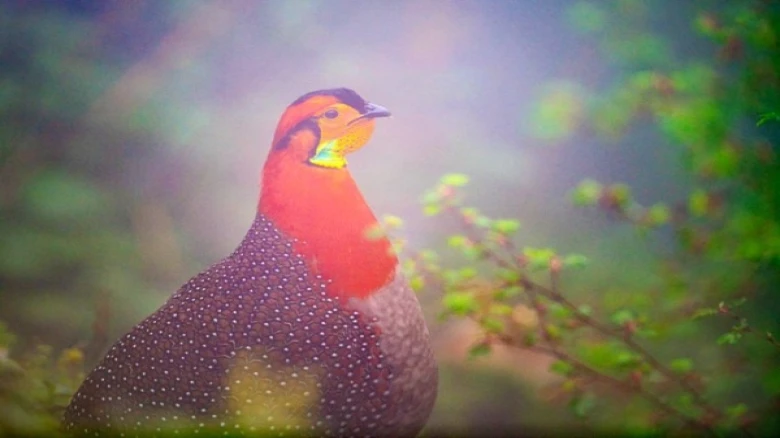The Congress leader has expressed concern over Blyth's Tragopan population, which is rapidly declining...
Digital Desk: Congress MP Jairam Ramesh on June 13 took to Twitter to praise his colleague and Rajya Sabha MP Mukul Wasnik for his remarkable birdwatching skills, as well as for photographing a Blyth's Tragopan near Mayodia Pass in Arunachal Pradesh's Mishmi Hills.
Though the image is compelling, the Congress leader has expressed concern about Blyth's Tragopan populace, which is rapidly declining and is now an endangered species.
Jairam Ramesh took to Twitter and captioned, “There is so much more to life than party politics. My colleague @MukulWasnik is a professional birdwatcher and has captured this absolutely amazing sight in Arunachal Pradesh — a Blyth’s Tragopan spotted at Mayodia Pass in the Mishmi Hills. But it’s fast getting endangered.”
The stunning bird, found mostly in the country's northeast, has been designated at risk due to its small and sparsely distributed population, which is rapidly declining and becoming increasingly fragmented in the face of ongoing forest loss and degradation throughout its restricted range.
Rapid deforestation has been a major cause of the falling population of this spotted-winged species in northeast India, as forests are the primary source of food. When this source is removed, the pheasants are left with little or no food to eat. Furthermore, its natural habitat is the forest.
The birds are hunted for food in Nagaland and Arunachal Pradesh using large-scale capturing and are also commonly shot with weapons and slingshots.
Unfortunately, the Naga state bird has become extinct in the state's forests due to overhunting for its flesh.
The northeast, which is endowed with nature's bounty and a plethora of flora and fauna, may soon lose its lustre if suitable measures to prohibit unlawful hunting of such birds and deforestation are not taken.

Leave A Comment